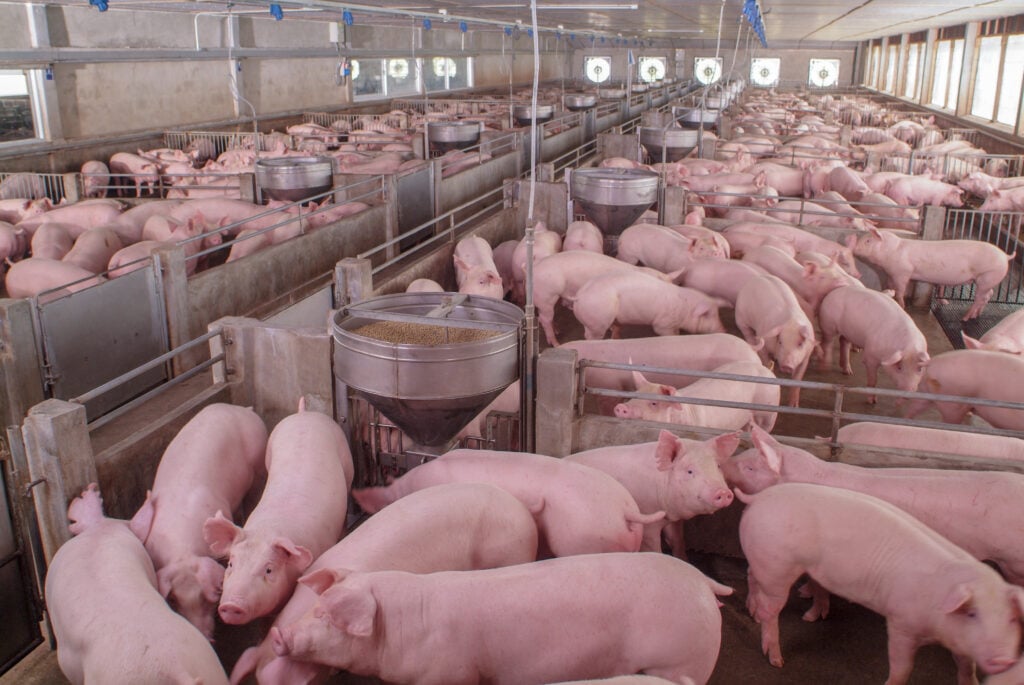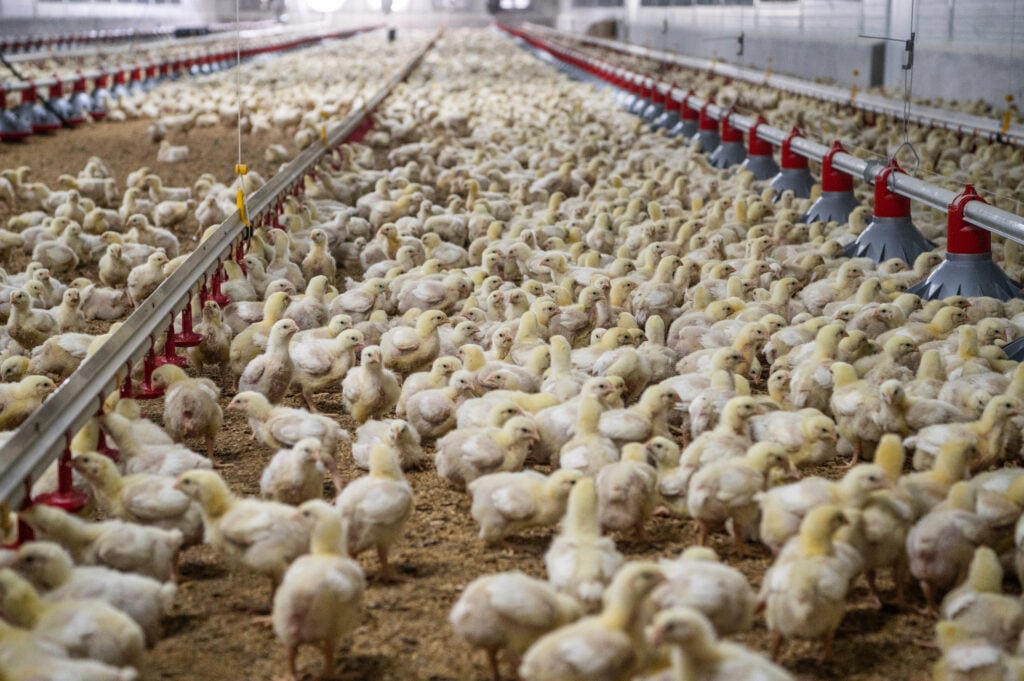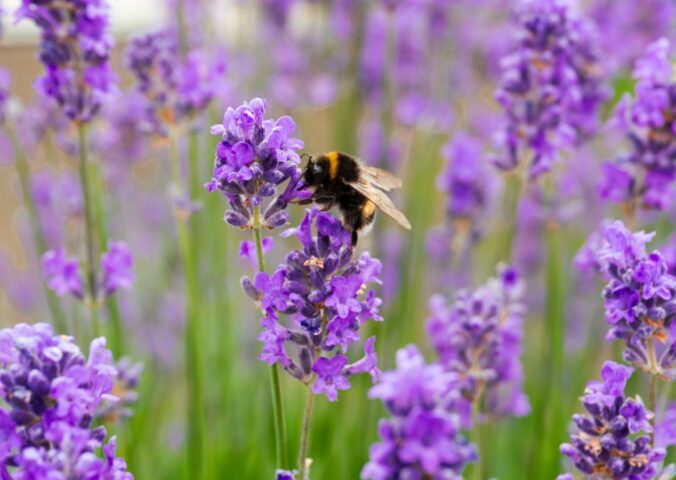Approximately 18 billion animals killed for food end up being thrown away, according to a new study.
Around a third of food produced globally ends up going to waste, either during production, transport, or by households and retailers. Researchers from Leiden University have calculated for the first time the animal cost embodied in waste across the whole food supply chain.
Animal products account for only 12 percent of food wasted, according to the research. But preventing these “deaths in vain” has greater ethical and environmental benefits than for wasted plant-based foods.
The researchers calculate that cutting meat loss and waste to the lowest levels across the food supply chain globally could spare 7.9 billion animal lives. This would not affect how much meat humans consume.
“The number of animal lives lost or wasted is huge but not surprising,” Laura Scherer, Assistant Professor of Environmental Sciences and one of the study’s authors, told Plant Based News. “It is a result of the about 75 billion animals used for the production of the six meat types we considered.”
“It’s shocking that 18 billion animals a year are raised and slaughtered only to be wasted,” Jessica Sinclair Taylor, Director of Campaigns at food sustainability charity Feedback, told Plant Based News (PBN), commenting on the study. “Waste is endemic in our corporate and industrialised food system and the impacts of this are nowhere more visceral than when it comes to meat and dairy products.”
Chickens most wasted animal
Chickens account for the majority of animals thrown away, at 16.8 billion. The vast majority of the approximately 70 billion chickens killed for food each year spend their short lives on factory farms.
Turkeys were the second most wasted animal after chickens, followed by pigs, sheep, goats, and cows.

The study did not include animal lives lost through waste in the egg and dairy industries, such as male chicks. Nor did it calculate the number of fishes who are killed only to end up not being eaten.
The researchers found only two previous efforts to quantify the animals killed and wasted. A low estimate of the equivalent of 115 million cows or 413 million pigs appeared in Friends of the Earth’s Meat Atlas. In their book Farmageddon, Philip Lymbery and Isabel Oakeshott put the number of wasted animal lives just from households throwing out food at 12 billion a year.
Food waste hotspots
In developing countries, most food losses occur at the production stage. This can be for reasons such as animals dying from diseases or meat going bad due to inadequate refrigeration during storage or transportation.
In developed countries, including industrialized Asian countries, most of the waste is due to supermarkets, restaurants, and households binning food. These countries are responsible for wasting the most meat.
The study found that China is the most wasteful country in the world, accounting for 16 percent of pointless animal deaths in the food system. The US is a close second, account for 13 percent. The UK is the tenth most wasteful country.
But there are stark differences in how many animals the average citizen of each of the countries wastes. In China, it’s 1.9 animal lives per person. In the US, it’s a massive 7.10 animals. The average British consumer is also extremely wasteful, accounting for 4.79 wasted animal lives each.

Environmental benefits
Globally, food loss and waste accounts for 10 percent of all greenhouse gas (GHG) emissions. But the study points out that wasted meat has a relatively bigger environmental impact than wasted plant-based foods.
Wasted beef has a particularly big impact; it takes 100 times more land to produce a gram of protein from cows compared to peas or tofu. All animal products also use more of other resources like water and emit more GHGs than almost all plant foods.
But when the number of animal lives lost through wastage are invisible, so too are their associated environmental costs, according to the researchers.
They warn that food waste reductions should not focus solely on the environmental gains, however. This is because poultry meat has the lowest environmental footprint of all meats, but producing it involves the highest number of animal deaths in vain. Instead waste reduction should focus on the points in the supply chain and the geographical regions in which waste is highest.
“Because it is environmentally costly to rear animals, meat and dairy contributes 78 percent of the greenhouse gas emissions of food waste at farm stage,” said Sinclair Taylor. “To address this, government should require all major food businesses to report on their total food waste, by category, and to set targets to address this, as well as implement measures to improve fairness in the supply chain to help address the waste of animals at production level.”
Cutting waste, saving lives
The study finds that it is possible to spare billions of animal lives without even reducing the amount of meat that people consume.
Reducing loss and waste half across the entire supply chain would save 8.8 billion animal lives.
In a scenario where food loss and waste was reduced to the lowest levels currently seen across the global supply chain, 7.9 billion animals could be saved. Even with that massive saving, enough meat could still be produced to meat current levels of consumption, according to the study.
In a scenario where reductions were made in line with the UN’s Sustainable Development Goal (SDG) 12.3 on Food Loss & Waste, 4.2 billion animals could be spared. Meeting the minimum targets in SDG 12.3 would mean a 50 percent reduction in waste just at the point of distribution to retailers and at the point of consumption in households and restaurants.
The authors write that visibilizing the animals behind meat loss and waste “could bring more weight to the case of reducing” food loss and waste. “After all, regardless of whether one objects to raising animals as a source of human nutrition, killing an animal that serves no purpose is unnecessary and wasteful.”
One case that made the waste of animal lives in the food system poignantly clear was the viral tweet of a baby octopus being sold to clear at a Morrisons supermarket. Vegan Justin Webb took a picture of the shrink-wrapped animal being sold at a reduced rate of 36p, sparking outrage. “It shows the human disregard for life,” he wrote. “We’ve moved her from her home to the rubbish bin. It’s unforgivable.”
The importance of a plant-based system
While cutting food waste would make a substantial difference to animal lives and the environmental costs of meat production, many would point out that moving towards a plant-based system is the best solution to these issues. Animal agriculture is regarded as one of the most environmentally destructive industries there is, responsible for greenhouse gas emissions, deforestation, biodiversity loss, and water pollution.
Experts from bodies including the UN and the University of Oxford have stated that Western countries need to dramatically reduce meat in their diets in order to combat these issues. A study published earlier this year found that plant-based diets resulted in 75 percent less emissions, water pollution, and land use, as well as contributing 66 percent less to the destruction of wildlife. For the animals and the planet, a plant-based diet has repeatedly been shown to be the best way forward.






